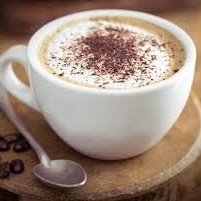click to dowload our latest edition
CLICK HERE TO SUBSCRIBE TO OUR NEWSLETTER


Published
5 years agoon
By
adminJORDAN MOSHE
While Jews may not have been the ones to discover the marvellous effects of the famed beverage, we certainly had a hand in popularising it across the globe.
Over a millennium has passed since the Ethiopians discovered the stimulating effects of the berries of their native coffee trees, primarily achieved by chewing them. This crop would eventually be exported to Yemen, where Sufi Muslims succeeded in roasting and brewing it into a tasty hot beverage. The drink caught on like wildfire, says author Gil Marks in his Encyclopedia of Jewish Food, not only as a social substitute for alcohol, which is forbidden in Islam, but also as a stimulant to keep the Sufis awake for their evening prayers.
With the proliferation of coffee across the Ottoman empire, Jews began to consider the status of this beverage, posing halachic questions and considering what kashrut standards should be applied to it. According to Jewish historian Elliot Horowitz, this started as early as the 1500s, when Rabbi David ibn Abi Zimra questioned the permissibility of coffee prepared by a non-Jew. Although he ruled that it could be drunk, he took issue with the coffeehouses in which it was frequently enjoyed, writing that “Jews who are holy […] would be embarrassed to drink it at such an establishment.”
While Jews may not have frequented coffeehouses, they certainly drank coffee copiously in the Beit Midrash. Religious Jews, like Muslims, imbibed coffee to stay alert for their night-long study of Torah until the early hours. Halachic authorities wrote copiously about these benefits, with one going so far as to say that “one cannot attain presence of mind without coffee”. Other questions arose with time, giving rise to fierce debates about whether it should be considered medicinal, what bracha should be said over it, and whether it interfered with concentration during prayer.
In spite of the stigma attached to coffeehouses, the popularity of the drink rose so dramatically, it was a Jew who exported the concept of the coffeehouse to Europe, specifically in Italy in 1632. Twenty years later, a Lebanese man known only as “Jacob the Jew” would establish the first English coffeehouse in Oxford. Even Sephardi Jews, many of whom also became coffee traders, soon joined Armenian and Greek merchants in bringing the coffeehouse and its contents to the Netherlands and France.
This wasn’t always easy, however. Authorities forbade Jews in Verona from having “women of any religion” visiting their coffeehouses. In post-medieval Germany, the authorities attempted to restrict the Jewish coffee trade altogether, writes Israeli historian Robert Liberles, because they feared the innovative beverage would threaten their thriving beer industry: “My people must drink beer,” proclaimed Prussian King Frederick the Great.
Fortunately, societal change had swept in by the 19th century, often heralded by those thinkers who frequented the coffeehouses themselves. In Berlin, Vienna, Budapest, and Prague the rising “café culture” fostered the growth of the Jewish intelligentsia. Mavericks such as writer Stefan Zweig, psychologist Alfred Adler, and then young journalist and playwright Theodor Herzl were among those sipping coffee in style.
Thanks to the Boston Tea Party, coffee replaced tea as the more “patriotic” drink in America, resulting in the coffee industry flourishing in the 18th century. European Jews arrived in their dozens at this time, bringing along coffee cake, the essential coffee pairing dish, which soon replaced the English teacake. These Jews also often entered the coffee trade in cities such as San Francisco, New Orleans, and Tucson.
As time passed, more and more Jewish personalities made names for themselves in the coffee industry. Latvian immigrant Joseph Martinson, Samuel Schonbrunn (who manufactured the Savarin brand served at the Waldorf-Astoria), and others competed fiercely for their place in the market.
When many Jews mistakenly began to believe that coffee was a bean that couldn’t be eaten during Pesach, Joseph Jacobs, the head of one of New York’s first Jewish advertising agencies, sought out an orthodox rabbi who ruled in 1923 that coffee was a berry, and certified that coffee made by manufacturer Maxwell House was kosher for Pesach. America further innovated coffee culture with the famed chain Starbucks, acquired in 1987 by Howard Schultz, a Brooklyn-born Jew.
Even in Israel before the founding of the state, Jews had a strong affinity for coffee and the café scene. Members of the underground Haganah forces often frequented Jerusalem’s Café Atara, as did writers like Shai Agnon. For years, the country’s only available coffee options were Nescafé – the generic term in Israel for “instant coffee” – or a thick Turkish coffee commonly called “mud”. Today, however, caffe hafuch (or upside-down coffee) is Israel’s own cappuccino. From Tel Aviv to Jerusalem, coffee shops occupy street pavements, and several local chains boast the finest roasted-bean variety of coffee-based choices, from Nutella lattes to artisanal iced coffees.
So, while we might not have invented the beverage itself, you can enjoy your next cup of coffee in the knowledge that Jews have found ways to make coffee Jewish in more ways than one.
